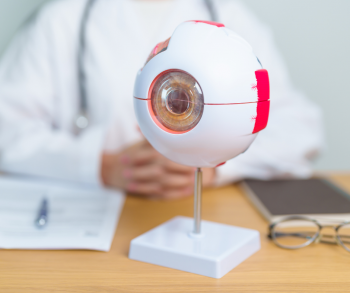Understanding AMD in Seniors
September 23, 2025

Age-related macular degeneration (AMD) affects millions of seniors worldwide, making it one of the leading causes of vision loss in adults over 50. This progressive eye condition attacks the macula, the central part of the retina responsible for sharp, detailed vision. While AMD can be overwhelming for seniors and their families, having home care assistance in place can make a profound difference in managing the condition and maintaining quality of life.
Recognizing the Early Warning Signs
Many seniors may dismiss early AMD symptoms as normal aging, but caregivers trained to recognize vision-related changes can play an important role in early detection. They observe the senior daily and can notice subtle changes that might otherwise go unrecognized. These warning signs include difficulty reading fine print, needing brighter lights for tasks, trouble recognizing faces from a distance, and straight lines appearing wavy or distorted.
Home care professionals are uniquely positioned to spot these changes because they spend significant time with the seniors in their care, helping with daily activities where vision problems often first become apparent. When a senior struggles more than usual with tasks like cooking, reading medication labels, or navigating familiar spaces, an attentive caregiver can encourage them to schedule an appointment with their eye care team.
Educational Support and Understanding
Understanding AMD can be challenging for seniors, especially when dealing with medical terminology and treatment options. With home care assistance in place, they gain valuable support, as caregivers can help seniors process information from eye care appointments and ensure they understand their diagnosis. They can also accompany seniors to medical visits, take notes, and ask clarifying questions that they might forget to address.
Caregivers also help seniors understand the difference between dry and wet AMD, the importance of regular monitoring, and how lifestyle factors like nutrition and smoking cessation can impact disease progression. By breaking down complex medical information into manageable pieces, caregivers empower seniors to become active participants in their eye health management.
Practical Daily Support
Living with AMD requires numerous adaptations to daily routines, and caregivers offer recommendations that seniors might not have considered on their own. They can also help organize homes for better navigation, ensure there is adequate lighting in key areas, and remove potential hazards that could cause falls. Additionally, with home care assistance, seniors can learn to use magnifying tools, large-print materials, and other adaptive technologies that help them maintain independence.
Medication management becomes particularly important for seniors with wet AMD who require regular injections or supplements. Caregivers help track appointment schedules, organize medications, and monitor for any changes in vision that might indicate disease progression.
Emotional and Social Support
Caregivers also provide emotional support during what can be a frightening and isolating experience. They offer companionship, encourage continued social activities, and help seniors adapt hobbies and interests to accommodate vision changes. This emotional support is essential for maintaining mental health and preventing depression, which commonly affects seniors dealing with vision loss.
AMD doesn't have to mean the end of independence for seniors. With knowledgeable home care assistance, seniors can better understand their condition, recognize important changes, and access appropriate care promptly.
If you or your loved one is looking for Home Care Assistance in San Jose, CA, please call Familiar Surroundings Home Care.
Santa Clara County: (408) 979-9990
San Mateo County: (650) 353-9777
Santa Cruz County: (831) 480-3990


